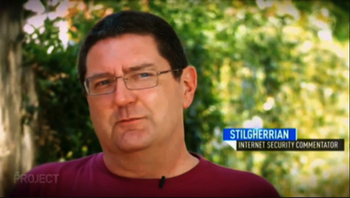![]() I continue to be pleased that digital privacy issues are getting more and more coverage in the mainstream media — such as the interview I did last Monday 20 January with radio 1395 FIVEaa in Adelaide.
I continue to be pleased that digital privacy issues are getting more and more coverage in the mainstream media — such as the interview I did last Monday 20 January with radio 1395 FIVEaa in Adelaide.
Presenter Will Goodings had spotted the story of Turnstyle Solutions in Toronto, who can track people around town via their smartphones and use that location data for marketing.
Rather stupidly, I talk about Australia’s Privacy Act being “under review” when in fact that review is well over and the new Privacy Act comes into force on 12 March.
We also spoke about the US Federal Trade Commission (FTC) forcing Apple to refund $35 million to customers who’d had their kids make what they felt were unauthorised in-app purchases on their iDevices.
It’s something the Australian Competition and Consumer Commission (ACCC) has been concerned about too, and they have a page to explain how you can block in-app purchases or complain to Apple or Google.
Podcast: Play in new window | Download (Duration: 12:47 — 5.3MB)
The audio is ©2014 dmgRadio Australia, but here it is ’cos it hasn’t been posted on the radio station’s website. Besides, this is a reasonable plug.

 On Friday 13 December I recorded some grabs for the Channel TEN program The Project, which were used that night in a story about Google’s idea of putting microphones in your house so that their “digital assistant” software could figure out how it could help you next.
On Friday 13 December I recorded some grabs for the Channel TEN program The Project, which were used that night in a story about Google’s idea of putting microphones in your house so that their “digital assistant” software could figure out how it could help you next. Back on 13 December I was a guest for the recording of the
Back on 13 December I was a guest for the recording of the